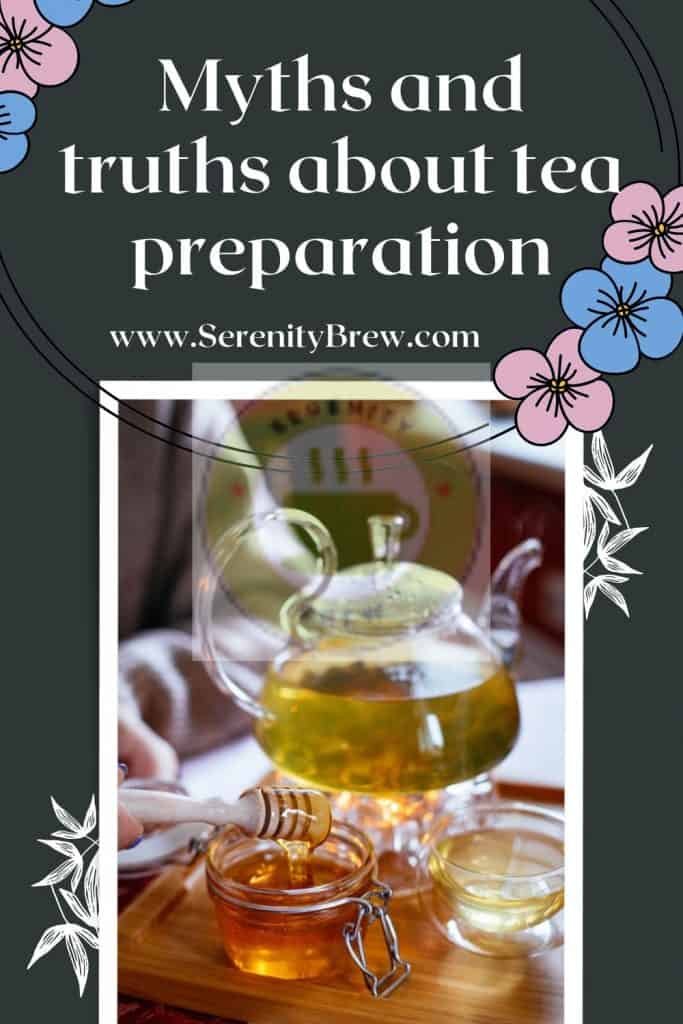
When it comes to brewing the perfect cup of tea, there are a few things that fans and experts disagree on. There are many myths and truths about the preparation of tea, but do you know which ones are true? “Boil the water”. “No, don’t boil it, the strands will burn.” “Better to use bottled water than tap water.” “Tea is drunk without milk… and without sugar.”
On this occasion, we want to make a list of the myths and truths about the preparation of tea. Are you ready to fully immerse yourself in this theme? Let’s go there!
Why does the information sometimes contradict each other?
The reality is that preparing a tea is not a matter of mathematics. There are as many ways as there are people and opinions. Each person has her recommendations to give and, we are talking about a matter of taste.
At the end of the day, the important thing is that the tea tastes good to you. What difference does it make to infuse the strands for more or less time if your cup of tea seems to you to be the best in the world?
On the other hand, we are usually used to preparing tea in sachets because it is “faster” and “more comfortable” and, in this case, there is not much room for controversy since the manufacturer’s instructions are followed, and that’s it!
When we enter the world of loose tea, things change: we find a lot of advice, usually disparate.
The type of tea chosen influences the elaboration as well as personal tastes influence the way of elaborating and tasting the tea; however, some common recommendations can be refuted with less subjective arguments. We are going to talk about exactly these.
Sachet tea brews faster
Although sachets are often chosen because of the supposed ease they provide to prepare tea, the truth is that using loose tea is, in practice, just as fast and can provide us with much higher quality.
Instead of using sachets when you want to brew a single cup, why not get an individual pot? Putting a tablespoon of tea and pouring boiling water is just as fast as heating water in the microwave and adding a sachet.
The water does not have to boil so as not to “burn” the tea leaves
Tea purists maintain that boiling water affects the flavor of the tea. However, we are sure that you have ever gone too far with the temperature of the water and you have not noticed any difference with your cup of tea every day.
That temperature influences the flavor that tea develops is not a myth, but it affects different types of tea differently. While black tea leaves are more oxidized and therefore less delicate, white or green tea leaves are more sensitive to heat and too much heat greatly affects their flavor.
The temperature of the water affects the amount of tannins that the tea releases into the water. These are a factor related to the degree of bitterness that our palate perceives in the tea.
It is not good to use tap water to prepare tea
The answer to this would be “it depends”. It depends on what kind of water there is where you live.
It is recommended to use soft water to prepare your tea, since the minerals and salts affect its flavor. If the water in the area where you live is rich in calcium, magnesium or lime, it may be necessary to decalcify it before using it to prepare your infusions.
On the other hand, some brands of bottled water may not be recommended for the preparation of tea for the same reasons.
Tea strands are used only once
Another myth that circulates a lot on the internet and that hurts us deeply because a. affects your pocket and b. you miss out on tasting the evolution of the same tea according to its infusion.
Surely this myth comes from the widespread use of tea bags. The reality is that infusing a tea bag more than once is not a good idea. Tea bags include tea leaf powder and therefore it is a lower quality tea whose flavor is almost completely extracted during the first infusion.
In the case of leaves, things change. The process of oxidation, drying and rolling of the leaves allows them to maintain all their color, aroma and flavor. When infused, the leaves are rehydrated and the water extracts its properties and flavor. However, a second infusion (a third, a fourth, or even a fifth depending on the type of tea) can add a new dimension to its flavor. There are complex teas that slightly change their nuances in each of their infusions. Don’t miss the opportunity to get to know them in depth!
Sugar and milk spoil the flavor of the tea.

Anything you add to your tea will affect its final flavor. Sweetening a tea won’t allow you, for example, to appreciate its level of astringency, and the milk in your tea will likely mask any fruity, herbal, or even toasty undertones.
However, as we said at the beginning of the article, the decision is yours! If you like milk tea, why listen to the so-called experts? Guide yourself by your palate and drink your tea as you prefer.
Finally, we cannot fail to mention the statement circulating on the internet about how bad it is to drink water that has been boiled twice. The truth is that we have not located scientific data about it, therefore we will not qualify it as a myth or reality. We can say that by boiling the water more than once, it is possible that certain substances are more concentrated, such as lime, and therefore, the final flavor of the infusion is slightly affected.
